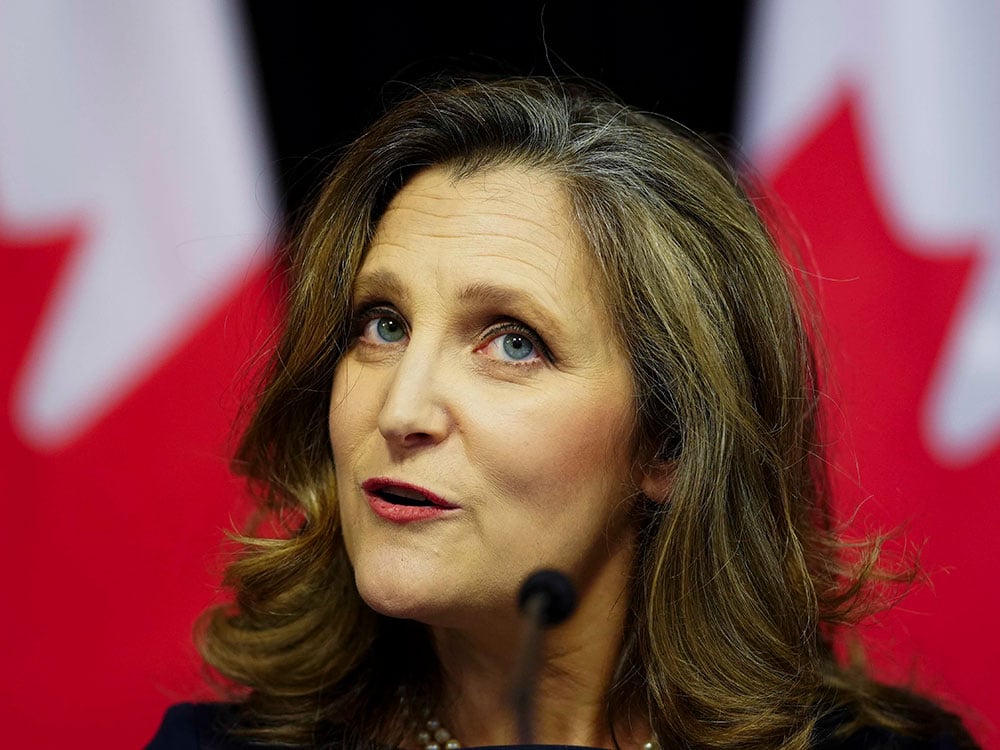It’s been almost two months since the federal budget, and anguished cries about the horror of capital gains tax changes are still coming.
Other measures in the $535-billion budget are forgotten. But a change that would increase taxes on a small number of mostly very well-off people is still in the news.
The capital gains tax debate is the latest front in the battle to keep taxes low — especially taxes on the wealthy, who have the greatest ability to wage public and political campaigns to protect their interests.
This demonstrates, again, one of the reasons we can’t have nice things such as a comprehensive health-care system or an effective climate response.
And how decades of anti-tax rhetoric — from politicians, interest groups and lobbyists, often amplified by media — have made it almost impossible to have a rational debate on a topic that’s critical to society.
The budget failed to do much to increase tax fairness. But it took one notable step by increasing capital gains taxes. Those are paid when someone — or some company — sells assets that have increased in value since they bought them.
If your childhood collection of hockey cards happens to include a mint Gretzky rookie card, valued at some $3 million, and you sell it, you’ll pay more tax on the profits. If you’re lucky enough to have a cottage and you decide it’s time to sell, you’ll be taxed on more of the gain.
The change is significant, and long overdue. Formerly, individuals had to include 50 per cent of capital gains over $250,000 on their tax returns. The budget increased that to 66.7 per cent. (The capital gains tax does not apply to the sale of your principal residence.)
So if you bought $500,000 worth of shares in the Misplaced Trust Company and sold them for $1 million, before the change you would have declared $125,000 in income and paid tax on that amount. Now you’ll declare $166,750.
That change does not seem punitive — especially as most of us do not make $250,000 in capital gains in a year.
The federal budget documents say about one in 1,000 individual tax filers will be affected by the change, and the average income of those tax filers is $1.4 million.



eh. It feels like a good time to start talking about why they want that tax break. It’s because GPs run a business that sells services to each province.
Historically, that’s because docs didn’t trust the whole Tommy Douglas single payer thing. They wanted to stay their own bosses. But the current generation of GPs wants a decent work/life balance, which doesn’t work so well financially. So maybe it’s time to offer GPs the chance to be employees.
Of course, that’s a province-by-province thing, and it’s not our politicians’ style to actually fix shit.
So we’ll get that tax break.
We should be forcing ALL of the provincial gov’ts to shut down their billion dollar medical oversight bureaucracy and spending those saving on raising nurse’s and physician’s wages.
Honest to gawd, I have tried my best to find a breakdown of the hundreds of millions of dollars my province spends … but they don’t publish it. They prefer if we don’t know so can’t call them on their secret privatization plans.
Yeah, this is a real issue. I shouldn’t have to worry about healthcare if I move or travel between provinces. This could be resolved today under the current system, yet it hasn’t. The only realistic reason is the various provinces don’t want to. If the feds could step in and make this go away I would be very happy. This would require a constitutional amendment, so I’m not holding my breath. I’ve heard some rebuttals that the provinces have needs that are too different, but the needs between the north and south of each province are greater than the needs between the provinces and we deal with that (often poorly). Another one I’ve heard is that the feds can’t be trusted to run something like that, but the provinces are doing a pretty poor job in most cases already. All this is besides the redundant administrative costs you mentioned.